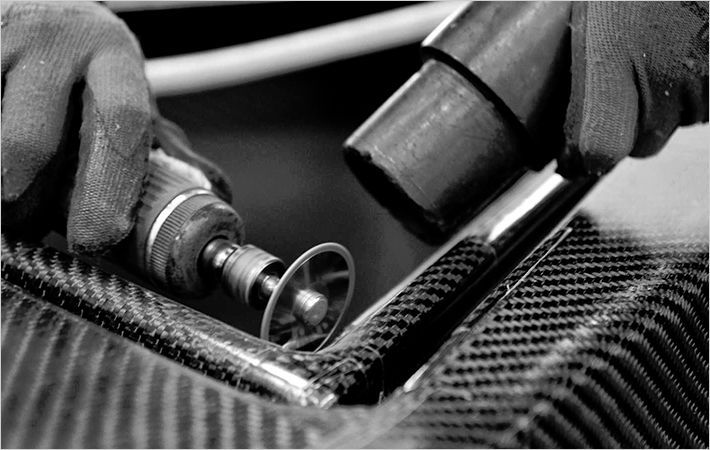Light weight design is a key issue with unchanged high relevance especially for automotive. Composites have an outstanding potential for light weight constructions. However the production of such components made of composite materials is complex and has not yet been implemented for mass production so far.
At New Materials Bayreuth GmbH a worldwide unique system technology is developed to generate a cost-competitive production of endless fibre reinforced components for automotive mass production. It is based on the combination of compression and injection molding in one manufacturing cell in order to realize short cycle times.
The system concept is a compression injection molding machine ENGEL ESP 4400H/ 2500 V with a parallelism controlled vertical clamping unit (25.000 kN) combined with a horizontal injection unit. In comparison to a conventional injection molding machine the vertical clamping unit is more advantageous, because the gravity can be utilized during the combined compression and injection molding process.
This enables the production of endless fibre thermoplastic composites, also called organic sheets, with function integrated borders and ribs by injection molding with cycle times of 60 – 90 seconds.
The benefit of the approach developed by the Bayreuth experts is obvious: Ultra-light and high-quality components on a single manufacturing cell and a single process step create a large potential for reducing manufacturing costs. Mathias Mühlbacher, group leader thermoplastic composites at NMB GmbH, summarizes: "This innovative system makes it possible to provide the supplier companies a production technology that allows them to produce competitive and attractive plastic products worldwide."
Combination of the injection molding compounding technology (IMC) with the long-term fatigue behavior of fibre reinforced thermoplastic composites
In addition to the continuous fibre reinforcement of plastics, the experts at New Materials Bayreuth GmbH deal with direct insertion of continuous filament rovings during the injection molding process. In the so-called D-LFT technology components with defined fibre length distribution (average weight of up to 8 mm), even in a geometrically highly complex part shape, consist from short or long fibre reinforced plastics, are realized.
To determine the operating limits of such molded parts (e.g. parts close to the engine), the knowledge of the fatigue behavior as a function of the fibre length and thermal load is of essential importance.
So far, there are no findings about the relationship between the influence of the fibre length of the fibre-reinforced thermoplastics components in combination with its thermo-mechanical service life. For this purpose a special test device, the so-called internal pressure cycling test is developed. This makes it possible to bring the fatigue properties in accordance with the fibre architecture and the advantages of the direct processing.

